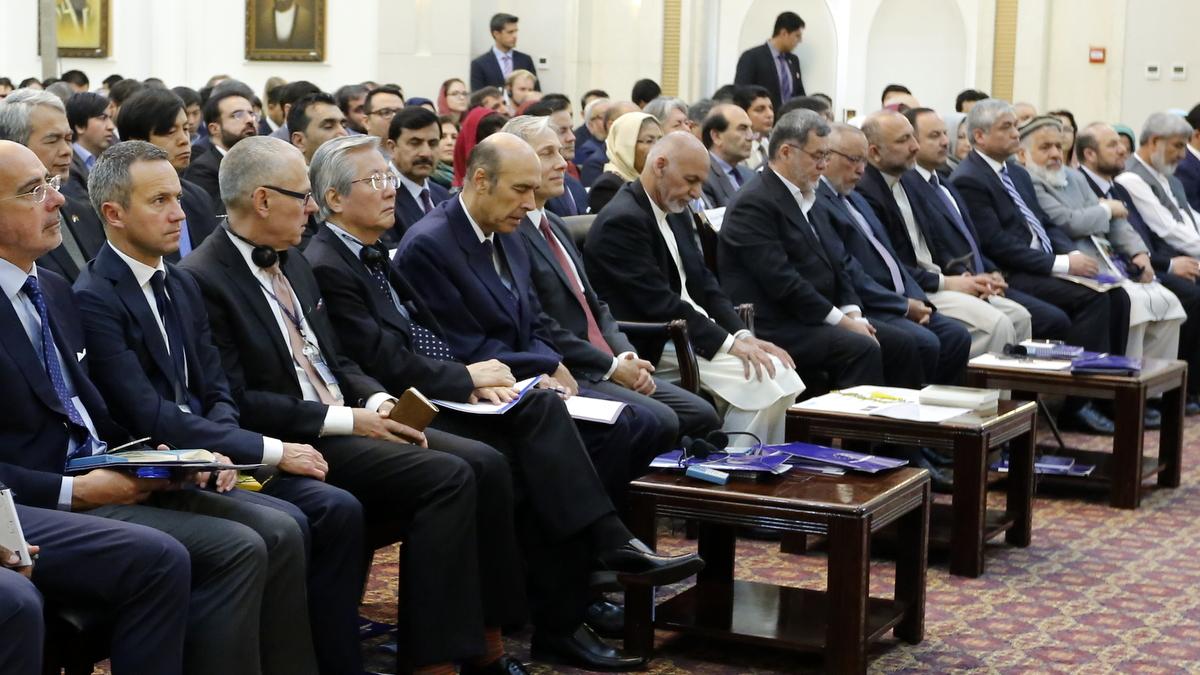KABUL - Afghanistan is making progress in fighting corruption in the face of many challenges, the UN Secretary-General’s Special Representative for Afghanistan said at an anti-corruption conference co-hosted by the Afghan government and the European Union held in Kabul today.
“Corruption is one of the greatest challenges to restoring lasting peace and development in Afghanistan,” said Tadamichi Yamamoto, who joined Afghan and international officials, including President Ashraf Ghani and EU Ambassador Franz-Michael Mellbin, in identifying progress made and the challenges remaining in fighting corruption across the country.
“The justice sector is Afghanistan’s most powerful weapon to fight corruption,” said the UN envoy, noting that the swift establishment of the Anti-Corruption Justice Centre, first announced at the same anticorruption conference one year ago, is an example of the country’s commitment to ending impunity with a strong, trusted and impartial justice sector.
“Demonstrating equal justice for all, including the highest ranking and most powerful, is a stark indication that the Anti-Corruption Justice Centre and other courts are free from political influence,” he said. “The ACJC, for the most serious cases, and the justice sector in all its cases, should communicate its work to the public in a way that is easy to understand.”
Mr Yamamoto, who is also head of the UN Assistance Mission in Afghanistan (UNAMA), went on to say that transparent work by the justice sector will allow greater scrutiny by the media and will help build public trust.
The UN official described how UNAMA has advocated for and supported the ACJC’s move to publish not only its decisions and sentences, but also the reasons behind those decisions. “This transparency ensures that the public will know the judgement is based on the rule of law alone,” said Mr Yamamoto.
While identifying these positive initiatives, UNAMA’s chief said that administrative reform must continue with more robust implementation of codes of conduct, including specialized ethical norms for prosecutors and judges, and noted that the justice sector’s fight against corruption will be a necessary part of Afghanistan’s commitment to formulate its national anti-corruption strategy under the leadership of the High Council on Rule of Law and Anti-Corruption.
He concluded by pointing to the need to protect the dedicated men and women combating corruption. “We urge the Ministry of Interior to ensure the safety of Afghanistan’s judges, prosecutors and judicial staff, especially those of the ACJC,” he said.
According to independent research, Afghanistan is one of the most corrupt countries in the world, affecting every segment of Afghan society, including business practices, government services, rule of law and justice. A new UNAMA report, released on 25 April, found that Afghan authorities have made progress in this area, but indicated that enormous challenges remain.
“For the sake of the country’s future, corruption in Afghanistan must be addressed and eliminated,” Mr Yamamoto said at the press conference to launching the report called ‘Afghanistan’s Fight Against Corruption: The Other Battlefield.’
The report makes several recommendations, recognizing that the government’s ongoing anti-corruption efforts have yet to impact the lives of most Afghans, and concludes that, notwithstanding the many legal and policy reforms that have been undertaken, corruption remains a substantial obstacle to Afghanistan’s long-term peace and prosperity.






